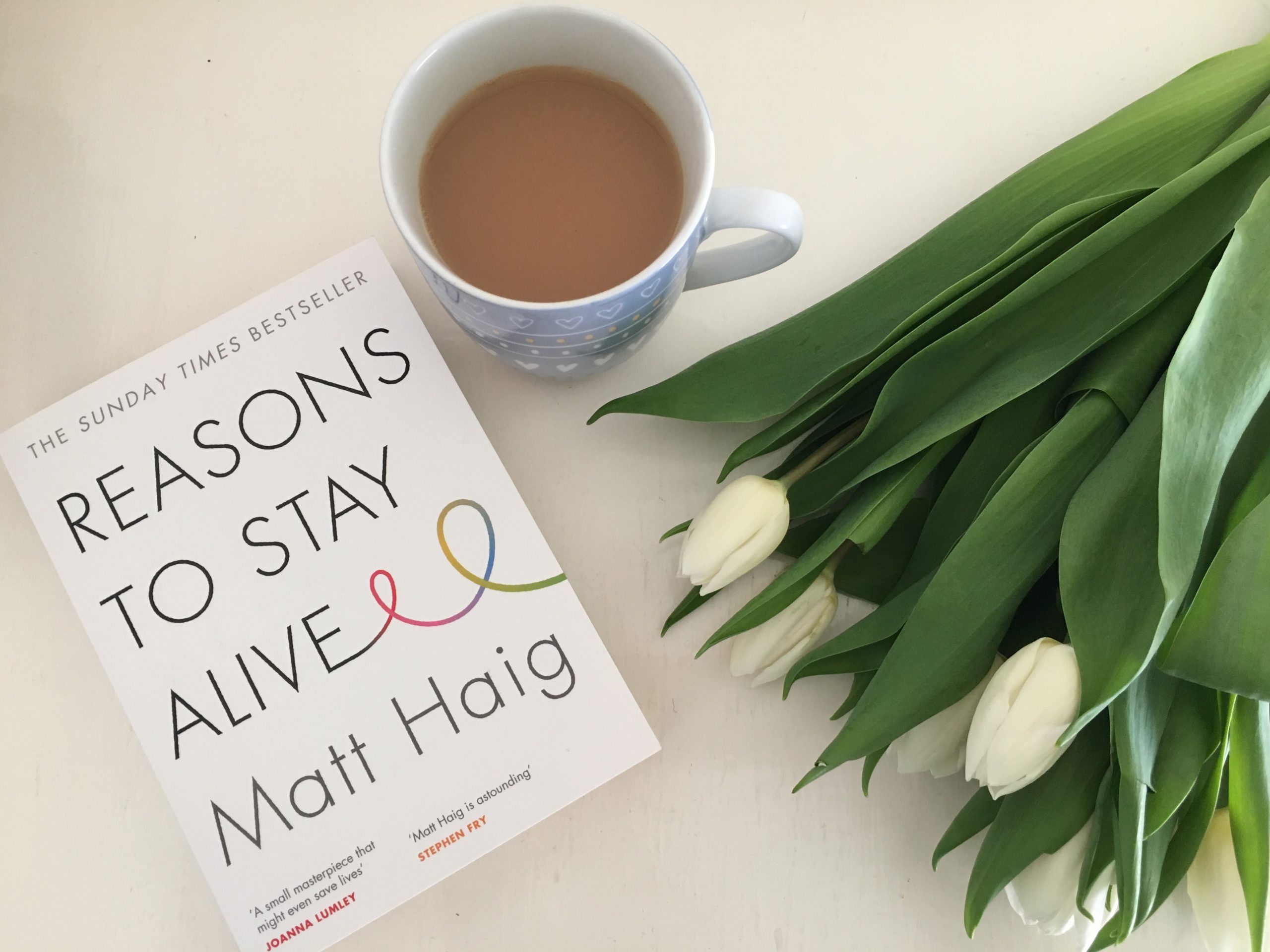
I wish I’d had a book like Reasons to Stay Alive when I was first diagnosed with clinical depression. In the very early stages of my illness, like most people bitten by the Black Dog, I struggled to understand what was happening to me. I felt so alone and detached from everyone and everything. Perhaps if Reasons to Stay Alive had been around then, I might not have felt quite so scared for so long.
Even though I didn’t have this incredibly insightful book to turn to, I did however have the support of family and friends. And NHS treatment that was a lot more accessible than it is today. I also had an incredibly understanding GP who didn’t just believe in throwing pills at me to get me to go away. I didn’t have to make a fuss or plead and beg to get a referral to see a psychiatrist either – although at that stage of my illness I don’t think I had any energy left to do such a thing anyway.
Since my diagnosis, I’ve read quite a few books about depression, mostly so-called self-help guides, which I’ve generally found to be of little or no help. Depression has this annoying ability of making any attempt to read a book akin to climbing Everest. But even when I did have the motivation and concentration to read, most of the time I struggled to connect with what I was reading. No one seemed to know what it was like being me. So for years I avoided self-help books like the plague.
But it couldn’t be more different with Reasons to Stay Alive. Mental illness is a difficult subject, but author Matt Haig writes so eloquently about his battle with depression, and with such warmth and honesty I’ve rarely encountered in a book of this kind. One of Matt’s greatest accomplishments with this book – part self-help, part autobiography – is his ability to share his experiences of debilitating depression without coming across preachy or self-indulgent. And surprisingly, it’s not in any way depressing. Not one bit.
Matt’s story is so relatable too. Like Matt, I was in my early twenties when I was first treated for depression following a breakdown. I spent a decade of my life on different types of medication. I’ve seen psychiatrists, counsellors, cognitive behaviour specialists. I’ve had psycho-dynamic therapy, alternative types of therapy and even, during my very worst times, electric shock therapy. And during my darkest days I’ve contemplated taking my own life because the pain I was in was too overwhelming.
For me though it was never about not wanting to live. I just wanted the pain to stop. And if that meant dying, so be it. I’ve swallowed pills and ended up in hospital, which was a truly humiliating experience and one I swore I’d never repeat. But truth be told, I never really had it in me, to do the deed. I also knew I would be transferring the pain I was in to the people who cared about me. Ultimately that realisation alone always stopped me. So instead I chose to keep going, to try and find a way to live with this horrible illness.
When I say live, for most part I guess I’d describe my life as falling somewhere between existing and surviving. But somehow I’m still here, living with depression, chugging along, hanging on. And that’s exactly what Matt advises us to do. To hang on in there if we can. Life is always worth it. Even though depression likes to trick us into believing otherwise. And he’s right.
I will always be grateful to Matt for having the courage to write this beautiful book. Books as wonderful and as accessible as Reasons to Stay Alive help to fight the ongoing stigma attached to depression and mental illness. As far as we’ve come, ignorance sadly still remains. And because of it people battling with their mental health are embarrassed and ashamed to seek help because they believe it’s a sign of weakness. Depression isn’t something anyone should be ashamed of. Quite the contrary.
So whether you’re someone living with depression, care for someone who does or work in the mental health services, please make it your mission to pick up a copy of this easy to read, moving, honest and funny book. It’s not often I come across a book I’d classify as a “must read” or “life-changing” but this one is. As books go it’s a powerful advocate for understanding and compassion – something the world is severely lacking.

 But it’s not just Perth’s beautiful weather that entices me to cycle. It certainly isn’t my love of lycra either – I’m not about to join the lycra clad cycling powerhouses that whiz past me as if they’re training for the Tour de France. Actually, my reasons are far more personal.
But it’s not just Perth’s beautiful weather that entices me to cycle. It certainly isn’t my love of lycra either – I’m not about to join the lycra clad cycling powerhouses that whiz past me as if they’re training for the Tour de France. Actually, my reasons are far more personal. If cycling doesn’t sound like your thing, here’s a few more suggestions to help release those endorphins (natural feel-good chemicals) into your body:
If cycling doesn’t sound like your thing, here’s a few more suggestions to help release those endorphins (natural feel-good chemicals) into your body: